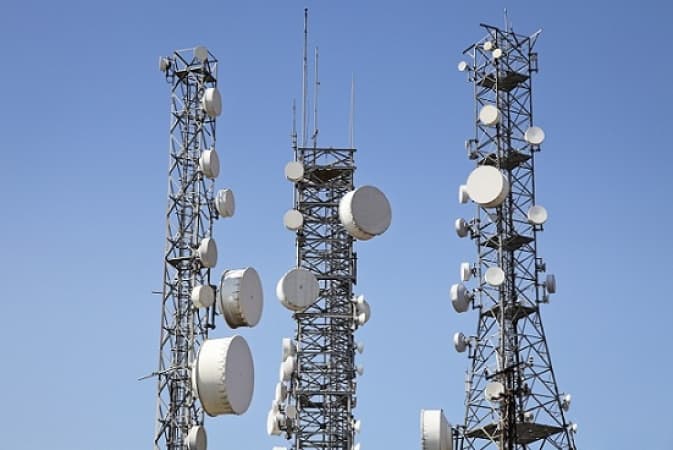
There is widespread concern over the rise in damage to telecom infrastructures with over 1,100 cases recorded on a weekly basis, according to a report by the Nigerian Communications Commission (NCC).
This, experts and stakeholders say, is responsible for the network glitches being experienced in some parts of the country.
The Nigerian Communications Commission has expressed grave concern over the increasing damage to telecommunications infrastructure nationwide, revealing that MTN, Airtel, 9mobile, and other telecom operators now record an average of 1,100 fibre cuts every week.
This was disclosed by the Executive Vice Chairman of the NCC, Dr. Aminu Maida, during the Critical National Information Infrastructure (CNII) and Sustainability Conference held in Lagos recently.
Analysts said telecom infrastructure sabotage is not just a crime against property; it is a crime against progress. These actions paralyze businesses, hamper government services, and jeopardize lives.
A report shows that in 2022 alone, over N13 billion was spent by Mobile Network Operators, InfraCos, and other Service Providers in fixing damages to fibre cuts and other telecommunication infrastructure. In 2023, this amount rose to N14.6 billion.
In the same report, operators in the telecommunications sector faced revenue losses amounting to N12 billion in both 2022 and 2023 due to customer compensation, site relocations and fibre resilience costs.
Now N35billion is now lost not just in repairs but in economic opportunity in recent weeks, according to telecom operators.
Nigeria is reported to have over 79,000 kilometres of fiber optic cables laid across the country.
While the fiber optic cables are not yet sufficient, they have been the subject of vandalism and theft in recent weeks.
In 2023, the NCC stated that over 50,000 cases of destruction of fibre optic cables and other telecommunication infrastructure had been reported.
Now it has reached 1,100 every week, according to NCC.
Reports from telecommunication companies buttress this disturbing trend. The recent one from MTN Nigeria notes that damages to three of its fiber cables were due to the activities of a construction company, gas pipe installation and bush burning respectively.
These cable cuts are one of the major reasons we experience downtime in telecommunication services, according to operators.
Yet, the damage is not irreversible.
“Damaging telecom infrastructure affects us all—from access to healthcare and mobile banking to education and staying connected with loved ones”, NCC said.
1,744 attacks
Nigeria’s telecommunications sector is facing an alarming surge in sabotage, with an average of 1,744 attacks recorded weekly across the country.
This figure includes approximately 1,100 fibre cuts, 545 incidents of access denial, and 99 cases of theft, posing a significant threat to service quality, network expansion, and national security.
This revelation came during the Industry Sustainability and Critical National Information Infrastructure (CNII) Conference, organised by the Nigeria Information Technology Reporters’ Association (NITRA) in partnership with the Association of Licensed Telecommunications Operators of Nigeria (ALTON), in Lagos, where top officials and stakeholders gathered to address the growing crisis.
The executive vice chairman of the NCC, Dr. Aminu Maida, warned that telecom infrastructure sabotage has reached a critical level, with direct implications for millions of Nigerians and the stability of the digital economy.
Maida who was represented by the director of technical standards and network integrity, NCC, Edoyemi Ogoh, described the situation as a national emergency, noting that damage to infrastructure not only disrupts voice and data services but also threatens critical systems that underpin banking, emergency communications, healthcare delivery, education, and governance.
He stressed that the persistent attacks were undermining Nigeria’s broadband expansion targets and digital inclusion goals, especially in underserved areas.
The Commission reaffirmed that the nation’s telecommunications infrastructure had been designated as Critical National Information Infrastructure (CNII) by President Bola Ahmed Tinubu, under the Cybersecurity Act.
This designation, Maida said, requires coordinated action across government, regulators, law enforcement, private operators, and the public to ensure its protection.
The EVC said the commission had taken multiple steps, including stricter enforcement of technical standards, targeted stakeholder engagements, mediation to resolve access disputes, and a broad-based public awareness campaign to curb sabotage.
He explained that beyond engagement, enforcement measures would be activated when necessary, especially where dialogue and regulatory intervention fail to yield results.
The NCC is also collaborating closely with the Office of the National Security Adviser (ONSA) to align CNII enforcement with the broader national security framework, he disclosed.
Maida urged all stakeholders, including government agencies, operators, civil society, and the media, to treat the protection of CNII as a national emergency, while assuring that the Commission would continue to work with partners across sectors to build a secure, resilient, and inclusive communications ecosystem that can support Nigeria’s digital transformation and safeguard critical infrastructure for future generations.
Media and industry leaders also expressed concern about the increasing vandalism and theft of telecom infrastructure.
Chairman of the Association of Licensed Telecom Operators of Nigeria (ALTON), Gbenga Adebayo, echoed similar concerns and stressed that operators must lead by example.
Adebayo said many sites lack basic protection measures like fences and locks, making them easy targets for criminals.
He highlighted the growing black market for stolen telecom components, calling on law enforcement to crack down on the sale and distribution of these items.
ALTON chairman warned that without serious consequences for offenders, the sabotage would persist and worsen.
The conference also exposed broader structural and regulatory challenges confronting the sector, including the high cost of diesel powering base stations, multiple taxation and Right-of-Way delays across states, prolonged approval processes for new infrastructure, and an uptick in cyber threats as over-the-top (OTT) and Internet of Things (IoT) services grow in usage.
Speakers at the event agreed that sustaining Nigeria’s digital economy requires stronger collaboration, enforcement, and investment in public awareness.
They warned that the cost of inaction, ranging from service disruptions and lost investor confidence to national security threats, is too high for the country to ignore.
President of NITRA, Chike Onwuegbuchi, called for the establishment of a dedicated trust fund to support infrastructure protection and security.
He decried the public’s limited understanding of the damage caused by such attacks, stressing that many still view telecom equipment as materials to be stolen and sold, unaware of the impact on their own communities.
Designation of Critical National Infrastructure
In August last year, President Bola Tinubu signed an official gazette designating telecom infrastructure as a critical national information infrastructure and making it a criminal offence for anyone to wilfully destroy such infrastructure in the country.
According to the Minister of Communications, Innovation, and Digital Economy, Dr. Bosun Tijani, the gazette, ‘Designation and Protection of Critical National Information Infrastructure Order, 2024’, is a significant step that would strengthen and protect investments in the ICT sector.
However, that was not the first time such a declaration would be made. In June 2020, the immediate past Minister of Communications, Dr. Isa Pantami announced a similar action by former President Muhammadu Buhari.
Also, as part of measures to address the issue, the Federal Ministry of Works (FMoW) and the Federal Ministry of Communications, Innovation, and Digital Economy (FMoCIDE) in February this year, formed a Joint Standing Committee on the Protection of Fiber Optic Cables.
“The impact of vandalism of infrastructure is felt by all in the quality of services rendered as it results in increasing drop calls, data and Internet connectivity disruptions, aborted and undelivered short messaging services (SMS), as well as countless failed calls”, NCC boss said.
However, telecom subscribers in Nigeria have continued to express frustration over the quality of service being received from network operators, months after the 50% tariff hike that was expected to lead to improved service delivery.
From incessant network outages to slow internet speed, complaints across MTN, Airtel, Globacom and T2 are mounting by the day.
This was in spite of the multimillion-dollar investments in network capacity announced by the telecom operators after the price increment to boost service quality.
But telecom operators said the current challenges with service quality are as a result of an increase in fibre cuts and damage to telecom infrastructure across the country.
While lamenting billions of Naira being spent annually on repairs of damaged cables, the operators said they are also losing money to poor network services.
“It is not in the interest of any network operator that its service is poor because if you are unable to use the service, then we won’t be able to make money from you. When the service is good, you talk more, you use more data, and that is what gives us revenue,” a telecom operator said.
He noted that rampant cases of fibre cuts have been draining the purse of the telecom operators as they keep spending on repairs while losing revenue during the period of the service outage in affected areas.
Highlighting the severity of the attacks on telecom infrastructure, Senior Manager at Broadbased Communications, Jude Ighomena, revealed that telecom operators lost an estimated N5 billion in 2024 due to infrastructure damage in Lagos State alone.
According to him, over 2,500 fibre cuts were recorded in the state last year, causing widespread service disruptions and financial losses.
He noted that Lagos’ busiest commercial districts—Ikeja, Lekki, and Victoria Island—are the most affected, with road construction and private developments frequently damaging underground fibre cables.
NCC had also assured subscribers that one of the conditions given to the operators before it approved the 50% price hike in January was that they have to improve their service quality.
However, the operators have pinned much of the blame on recurring fibre-optic cable cuts and infrastructure disruptions, saying these are undermining efforts to expand network capacity.
Possible collapse of sector
Telecommunications operators in Nigeria alerted the Federal Government to the possible collapse of the telecom sector owing to a sudden rise in the vandalisation of industry infrastructure.
Under the aegis of the Association of Licensed Telecommunications Operators of Nigeria (ALTON), the operators expressed deep concern over the increasing wave of vandalisation and theft of telecommunications infrastructure across the country.
ALTON, in a statement signed by the Chairman and Publicity Secretary, Gbenga Adebayo and Damian Udeh, respectively, observed that since the Federal Government’s decisive interventions earlier this year to support industry sustainability, members have committed unprecedented levels of investment in network optimisation and capacity upgrades.
ALTON said new systems are being deployed, transmission equipment modernised, power systems overhauled, and thousands of kilometres of fibre optic networks are currently being laid and expanded.
According to them, the industry has not seen this scale of investment in recent years, stressing that members are working around the clock to improve the quality of service nationwide and cannot afford these setbacks.
The operators, however, said unfortunately, between May and July 2025, multiple incidents of vandalism were recorded across cell sites in Rivers, Ogun, Osun, Imo, Kogi, Ekiti, Lagos, Federal Capital Territory, Abuja and many other states.
ALTON said these acts of sabotage have significantly disrupted network services, causing widespread connectivity blackouts, leading to degradation of services and severely impacting millions of subscribers. (DAILY TRUST)
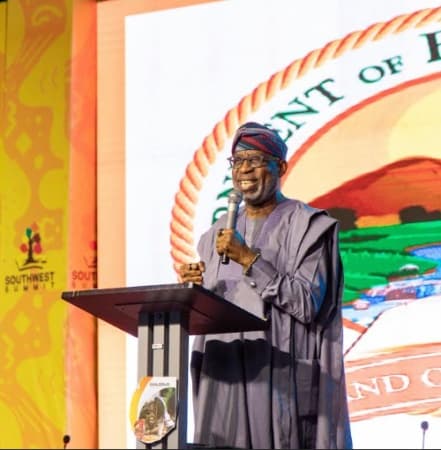
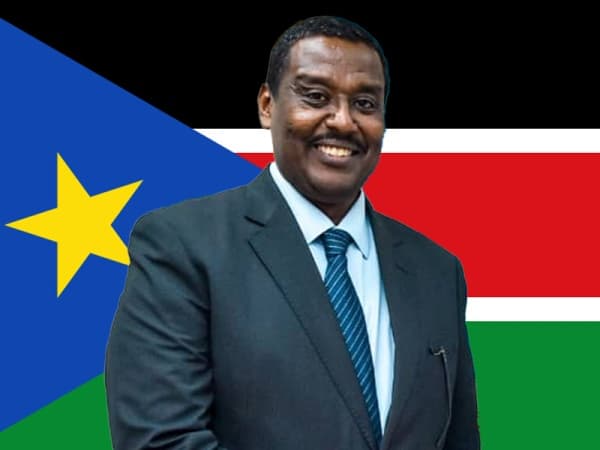
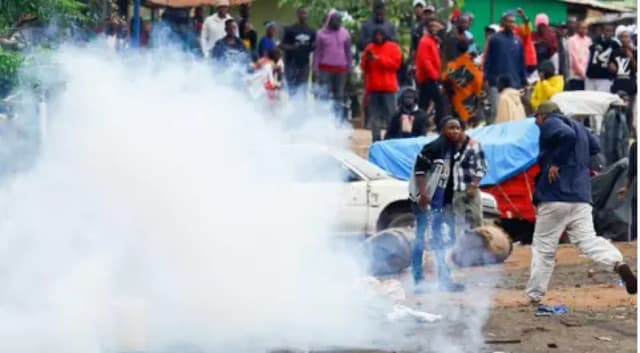












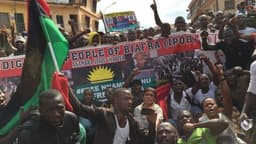




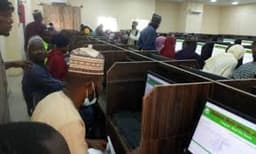






NEWS EXPRESS is Nigeria’s leading online newspaper. Published by Africa’s international award-winning journalist, Mr. Isaac Umunna, NEWS EXPRESS is Nigeria’s first truly professional online daily newspaper. It is published from Lagos, Nigeria’s economic and media hub, and has a provision for occasional special print editions. Thanks to our vast network of sources and dedicated team of professional journalists and contributors spread across Nigeria and overseas, NEWS EXPRESS has become synonymous with newsbreaks and exclusive stories from around the world.